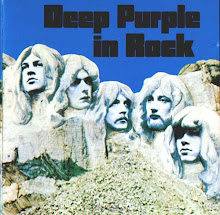 The Likely Lads was a popular but short-lived BBC sitcom of the mid-60s, written by the great comic partnership of Dick Clement and Ian La Frenais. I wasn't around to see the original, but they revived it in the early '70s as Whatever Happened To The Likely Lads? and that show became one of my earliest favourites, one of the most resonant memories of my childhood.
The Likely Lads was a popular but short-lived BBC sitcom of the mid-60s, written by the great comic partnership of Dick Clement and Ian La Frenais. I wasn't around to see the original, but they revived it in the early '70s as Whatever Happened To The Likely Lads? and that show became one of my earliest favourites, one of the most resonant memories of my childhood.It was a touching study of a friendship, of the bond between two young northern working class lads who'd known each other all through their schooldays. It was not always an easy relationship: it was something of an attraction of opposites, with Bob Ferris (played by Rodney Bewes) being meek, neurotic, earnest, ambitious, conforming, while his mate Terry Collier (James Bolam) was an indolent, curmudgeonly ne'er-do-well. But they were both fond of a beer or several, and this was probably my first introduction to the cosy camaraderie of pub culture.
At the outset of the revived series, it was revealed that Bob had signed up for the army on a wild impulse (perhaps after being dumped by a girl?), and Terry, not wanting to be separated from his lifelong friend, had followed suit; alas, Bob was rejected for having flat feet, while Terry found himself trapped in the army. Terry, we learned, had taken to life in the forces for a while, and while stationed in Germany had fallen for a German girl and got married. The marriage had foundered, and he returned to his hometown (it was supposed to be Newcastle, although I don't think there was any location filming until the later feature film version) and, after several years out of touch, resumed his often fractious but extremely warm friendship with Bob.
Bob had by this time got himself a steady, boring job and had married an attractive but very strait-laced, social-climbing, slightly shrewish girl called Thelma. Terry lapsed into the life of a bum, a shiftless scrounger apparently surviving mostly on the dole, and devoting his days to fishing, drinking beer in pubs, and having a regular flutter on the horses. He was in many ways disturbingly reminiscent of the archetypal working-class slob Andy Capp (a character also played by Bolam some years later, in a short-lived TV adaptation of the famous comic strip). I would never nominate the loathesome Capp as one my 'role models', however; as Homer Simpson once remarked of him, he was essentially just a "wife-beating drunk", and almost completely devoid of any positive qualities. Terry, on the other hand, could be very sweet-natured, and was affectionate and fiercely loyal to his family and friends - even to his apparent nemesis, Thelma (beneath their superficial dislike for each other, there was a grudging respect - and also, on occasion, a frisson of sexual attraction). He was also something of a barroom philosopher, railing passionately and convincingly against many of the ills of the modern world. And he was, of course, an ultimate exemplar of the 'bad influence', the catalyst of good times who tempts his more staid friend into reckless indulgence and bizarre adventures; though more often, perhaps, his role was to be the terrible object lesson that serves as a warning reminder to Bob and keeps him mostly on the straight-and-narrow. I fear I occupy a similar position in the lives of many of my friends (particularly uptight Indian medic, The Egregious Dr P); they like to exaggerate my wanton excesses because they are secretly envious, and take some pleasure in living a wilder life vicariously through me. If there is one person, one character I could blame for the path my life has taken, it is Terry Collier. No, 'blame' is harsh: I'm not really complaining.
The other secret of the show's appeal was that it fairly oozed nostalgia - an aching regret both for the loss of the more carefree life of childhood and early adulthood, and more generally for the loss of a simpler way of life in the past (Bob and Thelma's bland bungalow and their drab middle-class lifestyle represented all that was worst in the shallow materialism of modern consumer society; and Terry, I think, can be seen as obstinately, desperately trying to maintain an old-fashioned sense of family and community in the face of an accelerating fragmentation of society: these themes were underlined by the opening credit sequence which showed the monstrous concrete housing blocks that had replaced the quaint redbrick neighbourhoods where the boys grew up).
Also, the show had the most wonderfully mournful theme song, with some brilliant lyrics:
Tomorrow's almost over, today went by so fast;
Now the only thing to look forward to's the past...
The YouTube clip below has that song in its entirety (never heard like this in the show itself, I don't think); it is accompanied not by the original opening credit sequence, but by a montage of photos of Bob & Terry.






No comments:
Post a Comment